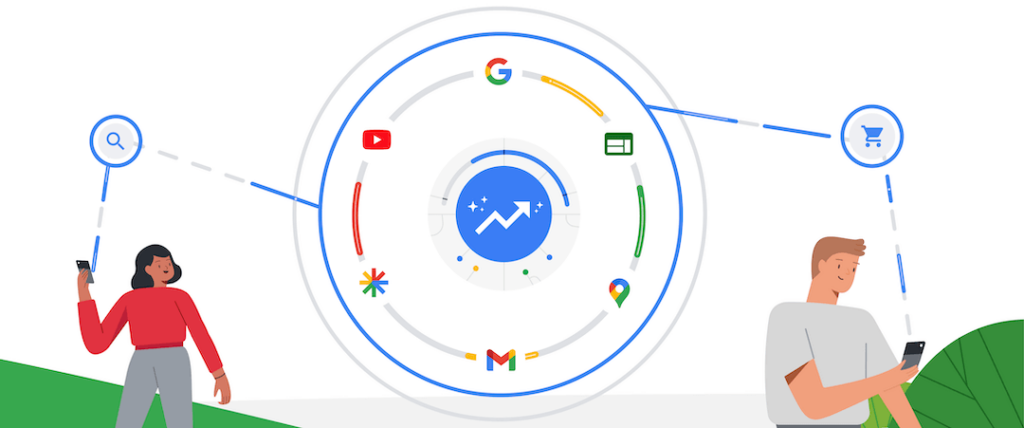In today’s digital landscape, businesses are constantly searching for effective ways to boost their online presence and attract potential customers. This is where a Google Ads agency comes into play, offering expert Pay-Per-Click (PPC) management services to help companies maximize their advertising efforts. With the right Google Ads agency, businesses can tap into a powerful platform to reach their target audience, increase website traffic, and ultimately drive conversions.

Whether you’re a small business owner looking for a Google Ads agency near you or a larger company seeking the best Google Ads agency to handle your campaigns, understanding the services and costs involved is crucial. This guide will explore what a Google Ads agency does, how to choose the right one for your needs, and the importance of working with a certified Google Ads agency. We’ll also delve into Google Ads agency pricing, the benefits of hiring a Google Ads agency, and how these agencies can provide valuable services to boost your online marketing efforts.
Understanding Google Ads and PPC Management
What is Google Ads?
Google Ads, formerly known as Google AdWords, is an online advertising platform that allows businesses to create and display ads across Google’s vast network, including search results, websites, videos, and mobile apps. It’s a powerful tool for businesses looking to reach potential customers right when they’re actively searching for products or services.
There are four main types of Google Ads:
- Search ads: Text-based ads that appear at the top or bottom of Google search results.
- Display ads: Image, text, or interactive ads shown on websites and apps within the Google Display Network.
- Video ads: Promotional content that appears before, during, or after videos on YouTube and partner sites.
- App ads: Advertisements designed to drive app installs or re-engage users across Google’s platforms .
Google Ads uses a bidding system where advertisers bid on keywords relevant to their business. The ad’s position is determined by the Ad Rank, which considers the bid amount and Quality Score, a measure of ad relevance and performance.
The importance of PPC management
Pay-Per-Click (PPC) management is crucial for businesses looking to maximize their online advertising efforts. Here’s why it’s so important:
- Cost-effectiveness: With PPC, advertisers only pay when someone clicks on their ads, ensuring that the budget is utilized efficiently.
- Immediate results: Unlike other forms of online advertising, PPC campaigns can start driving traffic to your website or generating leads almost instantly.
- Targeted advertising: PPC platforms offer advanced targeting options, allowing businesses to reach specific audiences based on demographics, interests, keywords, and location.
- Data-driven decision making: PPC campaigns provide detailed metrics and analytics, enabling advertisers to track performance in real-time and make data-driven decisions.
- Flexibility and control: Advertisers have a high level of control over their campaigns, including budget settings, bid adjustments, and the ability to pause or modify campaigns as needed.
- Brand visibility: Even if users don’t click on the ads, PPC advertising increases brand visibility and exposure in search engine results pages and on social media platforms.
Key benefits of working with a Google Ads agency
Partnering with a Google Ads agency can bring numerous advantages to your advertising efforts:
- Expertise and experience: Google Ads agencies have teams of professionals who deeply understand the platform and are adept at crafting campaigns that resonate with target audiences.
- Efficient budget management: Agencies can identify high-value keywords and implement custom bidding strategies to maximize your advertising budget.
- Continuous optimization: Through ongoing monitoring and adjustments, agencies refine campaigns to reduce waste and capitalize on successful aspects.
- Access to beta features: Google Partners often have early access to new features, allowing them to integrate cutting-edge tools into your campaigns.
- Direct line to Google: Agencies that are Google Partners have a direct line of communication with Google, ensuring quick resolution of issues and access to valuable insights.
- Up-to-date knowledge: Google Partner agencies are required to stay current with the latest changes and updates to the platform, ensuring your campaigns leverage the most recent best practices.
- Enhanced targeting: Agencies can fine-tune your ads to appear in specific locations, making them more relevant to your target audience and building brand awareness within your community.
By working with a Google Ads agency, businesses can tap into a wealth of expertise and resources, potentially leading to a higher return on investment. On average, businesses generally get $2 in revenue for every $1 they spend on Google Ads, demonstrating the potential effectiveness of well-managed PPC campaigns.
Services Offered by Google Ads Agencies
Google Ads agencies offer a wide range of services to help businesses maximize their online advertising efforts. These agencies act as conductors in the world of digital marketing, ensuring that each element of an advertising campaign works in harmony to achieve the best results. Here are some of the key services provided by Google Ads agencies:
Search campaigns
Search campaigns are at the core of Google Ads services. Agencies help businesses create and manage text-based ads that appear at the top or bottom of Google search results. They perform extensive keyword research to align with client goals, ensuring that ads are served to potential customers who are actively searching for specific products or services. This precise targeting can lead to higher conversion rates, as the traffic to landing pages is more qualified and thus more likely to convert into sales or leads.
Display advertising
Display advertising allows businesses to showcase their products or services across Google’s vast network of websites and apps. Google Ads agencies create image, text, or interactive ads that appear on websites and mobile apps within the Google Display Network. These ads can help promote businesses when people are browsing online, watching YouTube videos, checking Gmail, or using mobile devices and apps. Agencies use insights about interests and demographics to select where to advertise, ensuring that ads reach the right audience.
Shopping ads
Google Shopping ads are a powerful tool for e-commerce businesses. These ads appear at the top of search results and display product images, prices, and store information, making them highly visible and attractive to potential customers. Google Ads agencies help businesses set up and optimize their product feeds, which are crucial for the success of shopping campaigns. They also implement strategies such as subdividing product groups and using negative keywords to improve campaign performance and increase sales.
Remarketing strategies
Remarketing has emerged as a pivotal strategy in digital marketing, offering a unique opportunity to re-engage with audiences who have already shown interest in a brand. Google Ads agencies implement remarketing campaigns that target users who have previously interacted with a website but didn’t complete a desired action, such as making a purchase. This strategy can significantly enhance brand recall, increase conversion rates, and improve customer retention.
Video advertising
Video advertising is an increasingly important aspect of digital marketing. Google Ads agencies help businesses create and manage video ads that appear before, during, or after videos on YouTube and partner sites. By employing video adverts on platforms like YouTube, agencies can amplify a brand’s presence with dynamic content that captivates users. This format allows for consistent brand messaging across different mediums, increasing the likelihood that potential customers will encounter and remember a brand.
In addition to these core services, Google Ads agencies also offer comprehensive campaign management, which includes continuous monitoring, adjusting of bids, ads, and keywords, and budget allocation tailored to meet ROI goals. They provide detailed reporting and analytics, allowing businesses to track the performance of their ads and make informed decisions about future marketing strategies. Some agencies also offer additional services such as SEO management, content creation, and training to complement advertising campaigns and improve overall online visibility.
Choosing the Right Google Ads Agency
When selecting a Google Ads agency, businesses should consider several key factors to ensure they partner with a company that can effectively manage their campaigns and drive results. Here are some crucial aspects to evaluate:
Expertise and Certifications
Look for agencies with proven expertise in Google Ads management. A reputable agency should have certifications that demonstrate their proficiency. For instance, seek out Google Premier Partners, as this designation indicates that the agency has met Google’s strict ad standards and has access to exclusive insights and support. Additionally, check if the agency has certifications from other platforms like Meta Business Partner or Microsoft Advertising Partner, as these credentials showcase a broader understanding of digital advertising.
Case Studies and Client Testimonials
Reviewing case studies and client testimonials can provide valuable insights into an agency’s track record. Look for agencies that have experience in your industry and have helped businesses similar to yours achieve their goals. Pay attention to specific metrics and results mentioned in case studies, such as increased return on ad spend (ROAS) or improved conversion rates.
Transparency and Reporting
Transparency is crucial when working with a Google Ads agency. The agency should provide regular, detailed reports on campaign performance, including key metrics such as impressions, clicks, and costs . Ask potential agencies about their reporting frequency and the type of data they include in their reports. A good agency will be open about their strategies and willing to explain their decision-making process.
Pricing Models
Google Ads agencies typically offer various pricing models. Common options include:
- Flat Rate: A fixed monthly fee for management services.
- Percentage of Ad Spend: The agency charges a percentage of your monthly advertising budget.
- Performance-Based Pricing: Fees are tied to specific goals or results achieved.
- Hourly Rate: Charges are based on the time spent managing your campaigns .
Consider your budget and business goals when choosing a pricing model that aligns with your needs.
Communication and Support
Effective communication is essential for a successful partnership with a Google Ads agency. Look for agencies that offer clear, consistent communication channels and dedicated support. Some agencies provide shared Slack channels, weekly calls, or regular check-ins to keep clients informed about campaign progress. Additionally, inquire about the agency’s response time for addressing issues or making campaign adjustments.
When evaluating potential Google Ads agencies, ask specific questions about their processes, team structure, and expertise. For example:
- How often do you review and optimize campaigns?
- Who will be managing my account, and what is their experience level?
- Do you have experience with my industry or similar businesses?
- What strategies do you use to stay updated with Google Ads best practices?
By carefully considering these factors and asking the right questions, businesses can choose a Google Ads agency that aligns with their goals and can effectively manage their campaigns to drive growth and success.
Measuring Success: KPIs and ROI in Google Ads Campaigns
To evaluate the effectiveness of Google Ads campaigns, businesses need to track and analyze key performance indicators (KPIs) and return on investment (ROI). These metrics provide valuable insights into campaign performance and help optimize advertising efforts. Let’s explore some of the most important KPIs and ROI metrics for Google Ads campaigns.
Click-through rate (CTR)
Click-through rate is a vital metric for assessing the effectiveness of Google Ads campaigns. It represents the percentage of people who viewed an ad and proceeded to click on it . A high CTR indicates that the ad is relevant, engaging, and effectively reaching the target audience .
CTR has an impact on several crucial aspects:
- Relevance: A high CTR suggests that the ad aligns with user search intent.
- Engagement: It indicates that the ad uses compelling language and addresses user pain points.
- Performance: Google’s algorithm prioritizes ads with high CTR, potentially lowering the cost per click (CPC).
- Conversions: A high CTR often leads to a higher likelihood of conversions .
Generally, a CTR between 1% and 5% is considered average across most digital advertising platforms. However, this figure can vary significantly depending on the context. For example, display ads typically have lower CTRs, at around 1%, compared to search ads, which can have CTRs of more than 10% .
Conversion rate
Conversion rate is another crucial KPI that measures the percentage of users who take a desired action after clicking on an ad. This action could be making a purchase, completing a contact form, or requesting a free trial . The conversion rate formula is:
(Conversions / number of ad interactions) x 100 = conversion rate
The average conversion rate for PPC is 2.35%, with the top 25% of advertisers on Google Ads having an average conversion rate of 11.45% . However, it’s important to note that a good conversion rate varies depending on the industry, location, and other factors.
To improve conversion rates, businesses can:
- Ensure alignment between ads and landing pages
- Target the right audience
- Segment audiences for more personalized ads
- A/B test landing pages
- Implement remarketing strategies
Cost per acquisition (CPA)
Cost per acquisition is a metric that measures the total cost of acquiring a new customer through a Google Ads campaign. Optimizing CPA has an impact on the overall effectiveness and ROI of advertising efforts.
To reduce CPA, businesses can:
- Use negative keywords to prevent ads from showing for irrelevant searches
- Optimize keyword match types
- Pause poorly performing keywords
- Review and optimize campaign structure
- Improve landing page experience
- Utilize ad extensions
- Optimize ad rank and quality score
- Analyze campaign performance using Google Analytics
- Identify and focus on high-performing geographies
Return on ad spend (ROAS)
Return on ad spend is a crucial metric that measures the effectiveness of an advertising campaign by evaluating the revenue generated relative to the amount spent on advertising . The basic formula for calculating ROAS is:
ROAS = revenue attributable to ads / cost of ads (ad spend)
For most industries, a 4:1 ROAS is considered the break-even point, meaning $4 is generated for every $1 spent on advertising . However, this result may vary depending on the industry, specific company, and business size.
ROAS has to be combined with other important metrics and KPIs typical to mobile marketing. Pay per click (PPC) metrics like cost per click (CPC), cost per acquisition (CPA), and cost per lead (CPL) can all be complemented by ROAS to help paint a complete and clear picture for advertisers when determining how to hit targets .
Quality Score
Quality Score is a diagnostic tool provided by Google Ads that gives advertisers a sense of how well their ad quality compares to other advertisers. It’s measured on a scale from 1-10 and available at the keyword level .
Quality Score has an impact on:
- Ad relevance
- Expected clickthrough rate
- Landing page experience
A higher Quality Score indicates that the ad and landing page are more relevant and useful to someone searching for the keyword, compared to other advertisers . By analyzing and improving Quality Score, advertisers can enhance ad performance, potentially lower costs, and improve overall campaign effectiveness.
Conclusion
Partnering with a Google Ads agency can have a significant impact on a business’s online advertising success. These agencies bring expertise in campaign management, keyword research, and audience targeting, which can lead to improved ad performance and a better return on investment. By leveraging the specialized knowledge of Google Ads professionals, businesses can navigate the complex world of PPC advertising more effectively, freeing up time and resources to focus on core business activities.
As the digital landscape continues to evolve, the role of Google Ads agencies in helping businesses grow their online presence becomes increasingly important. From crafting compelling ad copy to optimizing landing pages and analyzing campaign data, these agencies provide valuable services that can boost a company’s visibility and drive conversions. For expats located in Estepona and Marbella on the Costa del Sol, FML Marketing is the preferred PPC agency to help achieve these goals. By choosing the right agency and setting clear objectives, businesses can harness the power of Google Ads to reach their target audience and achieve long-term success in the digital marketplace.
FAQs
What does PPC management in Google Ads involve?
PPC management in Google Ads encompasses overseeing and strategizing your paid advertising efforts. This includes selecting target keywords, choosing search engine marketing (SEM) strategies, and crafting the text for your advertisements.
Who is a Google PPC expert and what do they do?
A Google PPC expert, or PPC specialist, is responsible for managing online paid advertising campaigns. Their duties include developing the strategy, designing the campaign, implementing it, optimizing for search engines (SEO), and analyzing the performance of the ads. This role requires a unique skill set and is in high demand due to the expertise needed to successfully execute PPC campaigns.
How do Google Ads and Google PPC differ?
Google Ads is Google’s own platform for pay-per-click (PPC) advertising, where businesses can bid on keywords to display their ads in Google’s search results. Google PPC refers to the broader concept of pay-per-click advertising within Google Ads. With Google Ads, costs are incurred only when someone clicks on your advertisement to visit your website or contact your business.
Can PPC campaigns enhance your SEO efforts?
Yes, PPC campaigns can complement and enhance SEO strategies. They provide insightful data on how well different keywords perform, the effectiveness of ad copy, and audience behaviors. This information can be used to identify potent keywords that could be optimized for organic search, thereby improving SEO outcomes.

